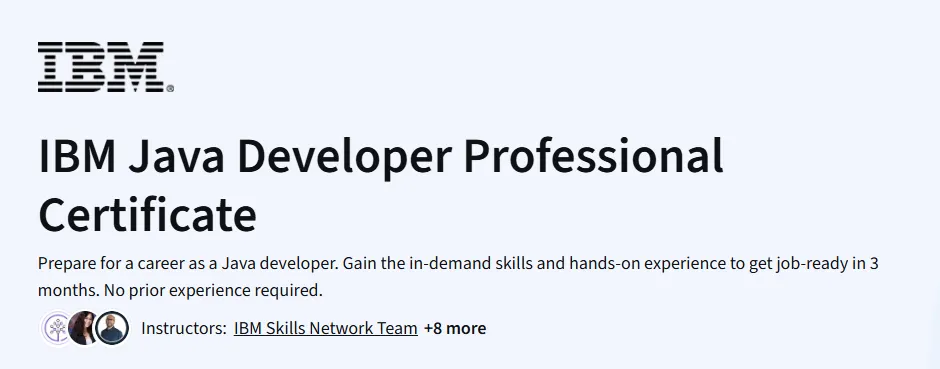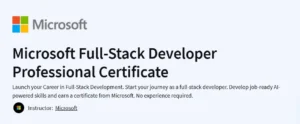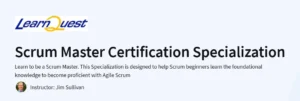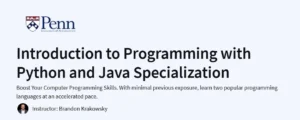What will you learn in IBM Java Developer Professional Certificate Course
Build end-to-end Java applications using modern frameworks and tools.
Master object-oriented programming and core Java syntax.
Develop RESTful APIs and backend services using Spring Boot.
Work with databases, version control, testing, and DevOps tools.
Prepare for entry-level Java developer roles with real-world projects.
Program Overview
Module 1: Introduction to Software Engineering
⏱️ 1 week
Topics: Development lifecycle, methodologies (Agile, DevOps), key engineering roles
Hands-on: Identify phases of a sample SDLC
Module 2: Java Programming Basics
⏱️ 2 weeks
Topics: Variables, conditionals, loops, methods, arrays
Hands-on: Write your first Java programs using Eclipse
Module 3: Object-Oriented Programming in Java
⏱️ 2 weeks
Topics: Classes, inheritance, polymorphism, abstraction
Hands-on: Build object-based applications with reusable components
Module 4: Java Application Development
⏱️ 2 weeks
Topics: Collections, exception handling, file I/O
Hands-on: Create file-processing and data-handling programs
Module 5: Java and Databases
⏱️ 2 weeks
Topics: JDBC, SQL basics, CRUD operations
Hands-on: Connect a Java application to a MySQL database
Module 6: Java Web Services with Spring Boot
⏱️ 3 weeks
Topics: REST APIs, Spring Boot, dependency injection
Hands-on: Build and deploy a RESTful API
Module 7: Testing, Debugging, and DevOps for Java
⏱️ 2 weeks
Topics: Unit testing (JUnit), CI/CD basics, GitHub
Hands-on: Test and deploy Java code using Git and CI tools
Module 8: Capstone Project
⏱️ 2 weeks
Topics: Apply full-stack Java knowledge
Hands-on: Build a complete Java application with API, database, and unit tests
Get certificate
Job Outlook
High demand for Java developers in enterprise, banking, and Android ecosystems.
Entry-level salaries: $60,000–$90,000/year; mid-level up to $120,000.
Strong freelance and remote opportunities.
Valuable for backend, full-stack, and microservices development careers.
Specification: IBM Java Developer Professional Certificate Course
|
FAQs
- No advanced coding background is required, but basic logical thinking helps.
- The course starts with foundational Java concepts before moving to complex topics.
- Having prior exposure to any programming language can speed learning.
- Beginners may need extra practice with problem-solving exercises.
- Online coding practice platforms can supplement learning.
- A degree provides broad theoretical foundations; this certificate is career-focused.
- The course is hands-on, designed for job-readiness in backend and full-stack roles.
- Employers often value real projects and demonstrable skills as much as formal degrees.
- It’s faster and more affordable than pursuing a multi-year degree.
- Ideal for career changers or professionals upskilling in tech.
- Entry-level roles like Junior Java Developer, Backend Developer, or API Developer.
- Opportunities in enterprise application development, fintech, and e-commerce.
- Positions in teams working on microservices and cloud-native applications.
- Possible freelance/remote projects in Java and Spring Boot ecosystems.
- This can be a stepping stone toward full-stack or software engineering roles.
- The certificate is issued by IBM, a globally respected tech brand.
- Recognized across industries like banking, insurance, and IT services.
- Adds weight to LinkedIn profiles and resumes worldwide.
- Valuable for both local job markets and international remote work.
- Shows proof of practical, industry-ready Java skills.
- On average, 5–8 hours per week is sufficient for steady progress.
- Faster learners may complete modules earlier with focused effort.
- Working professionals can balance it part-time alongside jobs.
- More time may be needed during project and capstone phases.
- Consistency matters more than intensity—regular practice is key.





